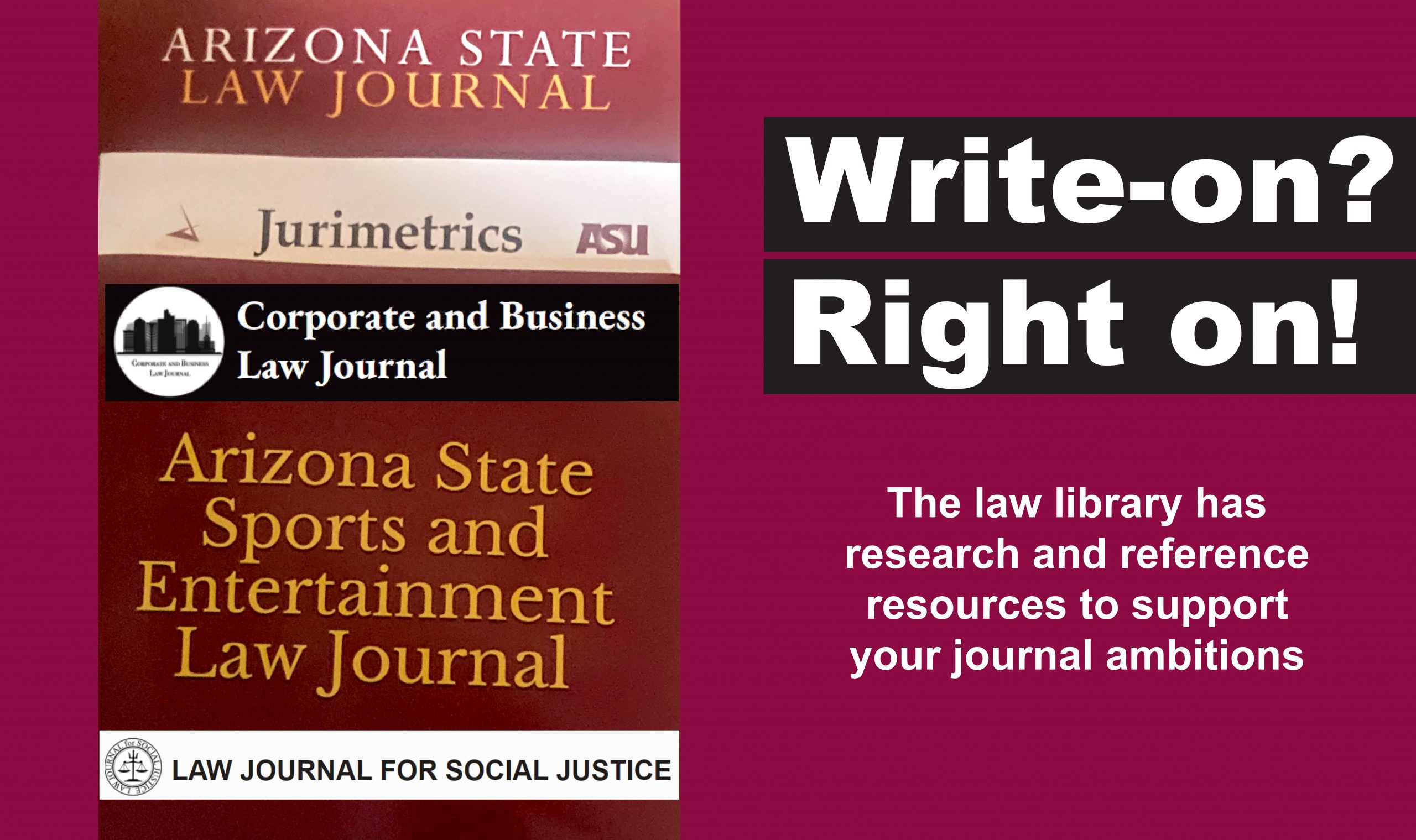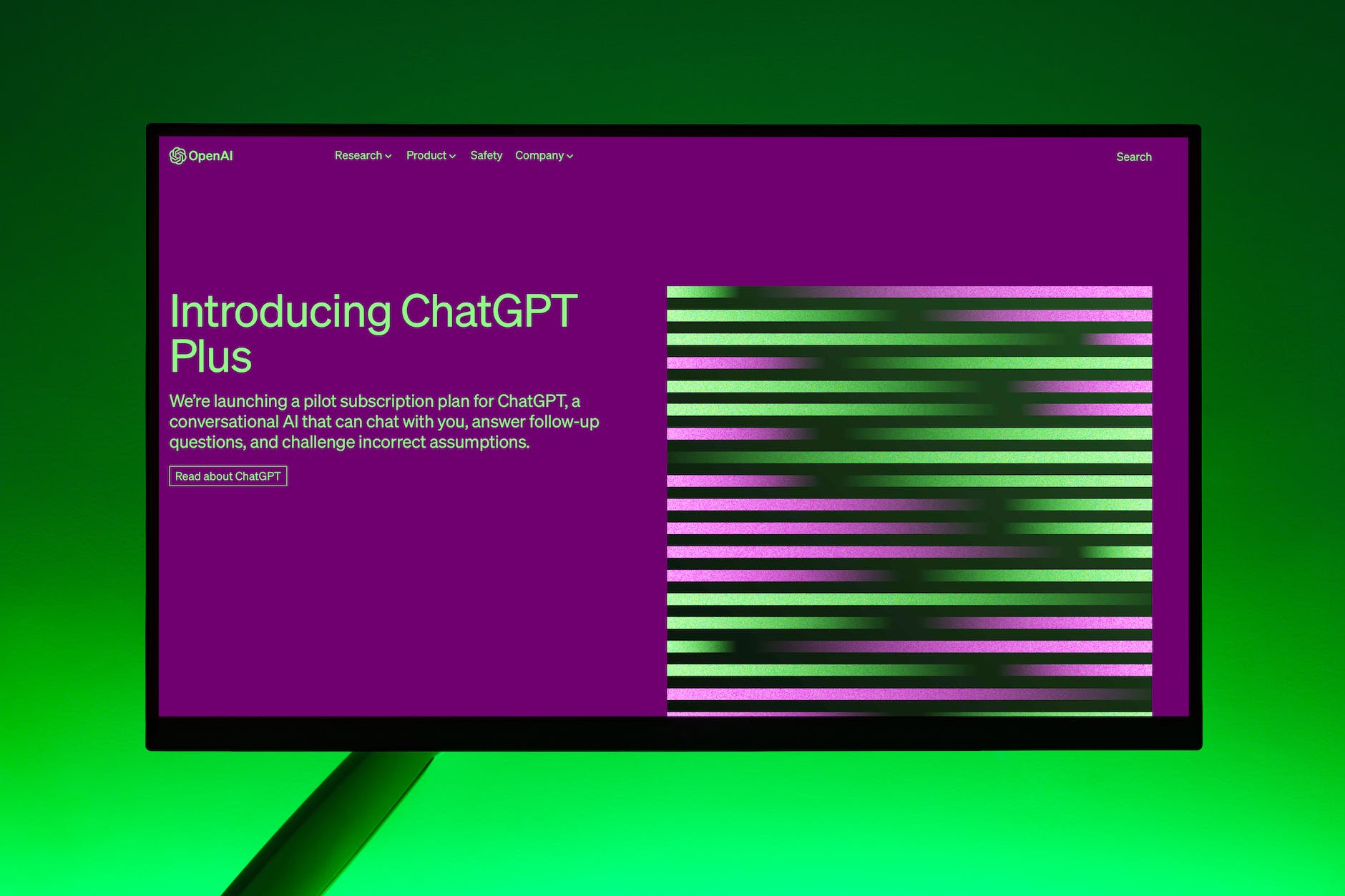At the end of the semester, you will have the opportunity to take a marathon write-on exam to test your Bluebook and writing skills under challenging conditions. The reward could be a staff position on Law Journal for Social Justice, Jurimetrics, Sports and Entertainment Law Journal, Corporate and Business Law Journal, or the Arizona State Law Journal.
Working on a journal is a great educational experience, giving you the opportunity to work with professional legal and policy arguments by law professors and legal practitioners while honing Bluebook skills. And it can help employers appreciate your resume.
So, how can you boost your chances of getting on Journal? The Law Library has resources to give you a leg up.
At the end of a rush of oral arguments, final briefs, and four final exams, you may all be welcoming the opportunity to wave goodbye to 1L. But, our First Year Legal Writing Guide provides many great resources to help you prepare for the written portion of your exam. So, just think of the All-Journal Write-on exam as your last act as a 1L. Resources for brushing up on memo writing will be critical, because this time you have only hours, not weeks, to polish a solid piece of legal writing.
We recommend Legal Method and Writing by Professors Charles Calleros and Kimberly Holst. This resource is particularly useful for refining your logical demonstrations of why the law applied to your facts would create a particular outcome. Examples & Explanations: Legal Writing, which retired Professor Judy Stinson co-authored, helps you demystify the process and write fast, clear, efficient CREACs (or IRACs or CRuPACs). One of the big challenges will be organization: this will help you craft a logical, coherent, modular argument that marshals unfamiliar resources quickly. You can find this E&E on the Aspen study aids website. Professor Stinson’s own The Tao of Legal Writing provides a framework for achieving your full potential as a legal writer—and most importantly for write-on purposes, an efficient strategy for outlining and writing your response that will leave you plenty of time for revising and polishing to help you stand out to the journals.
You will also face a test of your citation acumen, and we have you covered there, too. Our Legal Writing library guide can help you navigate the Bluebook in the Legal Citation section, which features books and online resources that provide examples and explanations of the rules. Speaking of that, Examples & Explanations: Legal Research can help you brush up on the principles of citation in its appendices so that you can better understand why we cite the way we do and begin to make complex citation decisions second nature. We recommend Understanding and Mastering the Bluebook to help you make sense of some complicated rules in the white pages of the Bluebook, which are the main focus of law journals but not first-year writing courses.
We have a host of useful resources to hone your understanding of The Bluebook in our LibGuides in advance of the write-on (including ways to automate certain processes). The Bluebook can be notoriously finicky, so the instant feedback and machine precision that the workstation provides can help you get accustomed to the cite-checking life. By clicking on the different topics, you can practice forming citation sentences, and the program will check to ensure compliance with standards for italics, small capitals, spacing, and abbreviation, and it can help you practice citing to unfamiliar sources such as administrative regulations, legislative histories, and law journals.
Finally, our Journal Cite Checking Research Guide will help you with one of the tasks most dear to the hearts of librarians—finding older or obscure resources in print or online. We have resources in place to help you do your research for cite checking, from interlibrary loan, to digital book repositories, to research databases, to government archives. And when you get stumped, our reference librarians are here to help.
Feel free to Meet with a Librarian; we can help you walk through complicated citation problems and get you started on research for your note or comment.
Originally written by Andrea Gass




